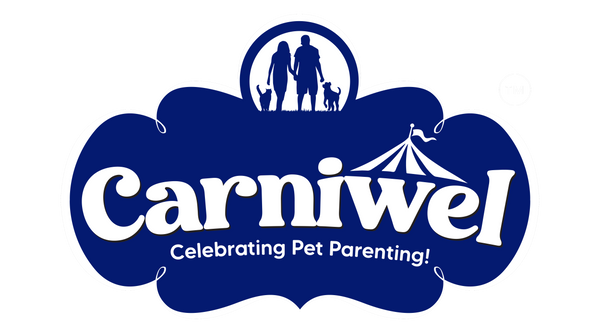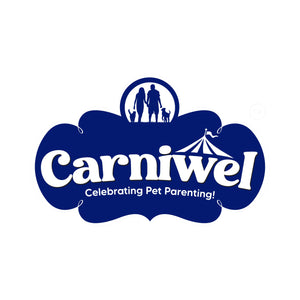If you are well informed about health and nutrition, you are likely to know about the Gut-brain Axis. The same applies to dogs - the health of your dog’s gut affects your dog’s mind and behaviour!
- Ever seen your dog hide behind corners?
- Does your dog scratch at doors or furniture when left alone?
- Have you noticed inconsistencies in your dog’s digestion at this time?
This is what the Gut-brain axis looks like. Your dog’s digestion is an extremely important part of their physiology and behavior. Taking care of such an important process requires an understanding of your dog’s digestive health. How does Digestion Work in Dogs? A dog’s digestive tract plays a vital role in nutrient absorption, immune system regulation, and overall well-being. The better the quality of nutrients, the easier and better the quality of digestive health and overall well being. Beginning in the mouth, the digestive process in dogs ends at the rectum. The most critical parts happen in the stomach and intestines. Here’s a simplified overview:
- Mouth: As with humans, dogs mechanically break down food by chewing and mix it with saliva.
- Stomach: Gastric acids and enzymes break the food into a semi-liquid form.
- Small intestine: This is where nutrient absorption takes place. Enzymes from the pancreas and bile from the liver help digest proteins, fats, and carbohydrates.
- Large intestine (colon): Water is absorbed here, and this is also where the gut microbiome lives. When our dogs are given high-quality nutrition, quality proteins and the correct qualities of proteins, fats and carbohydrates, we can see the difference in what their bodies eliminate too!
How Fast is my Dog’s Digestion? The average speed a dog takes to digest food is 8-10 hours. The following factors influence the speed of digestion in your dog:
- Age: Puppies and smaller dogs tend to digest food faster than older or larger dogs.
- Breed: Some breeds may have slightly different digestion times due to differences in size and intestinal length.
- Diet: Wet food generally digests faster than dry kibble, and raw food tends to be digested more quickly.
- Gut Health: A healthy gut microbiome can also influence digestion speed.
What Is the Gut Microbiome?Your dog’s gut isn’t just a place where food is broken down—it’s a complex ecosystem of trillions of microbes that impact digestion, immune response, nutrient absorption, and even behavior. In fact, 70–80% of your dog’s immune system lives in their gut.Gut microbiome is a vast community of bacteria, yeasts, and other microbes that live in the digestive tract—mostly in the colon. These microbes are essential for:
- Breaking down fiber
- Producing essential nutrients like short-chain fatty acids (SCFAs)
- Regulating the immune system
- Preventing harmful bacteria from growing
When the gut microbiome is balanced, your dog is more likely to have healthy digestion, strong immunity, and even better mood regulation. This is why Carniwel’s pet food range includes probiotics, yeast extracts and other essential substances to aid easy, healthy digestion. An imbalance in gut flora (aka “dysbiosis”) can lead to issues like loose stools, bad breath, dull coat, itching, bloating, and yes—some personality changes. Is my Dog’s Gut Healthy? Want to know if your dog's digestion is on track? Here are common signs of good digestive health:
- Regular, firm bowel movements
- Normal appetite
- Healthy weight
- High energy levels
- Shiny coat and healthy skin
- No excessive gas or bloating
When the gut is out of balance, dogs may suffer from digestive issues like diarrhea, constipation, vomiting, bad breath, food intolerance, or skin problems. These can be signs of gut dysbiosis—an imbalance in the gut microbiome. Why Gut Health Affects More Than Just Digestive WellnessOver 70% of a dog’s immune cells are located in the gut-associated lymphoid tissue (GALT). This means your dog’s gut isn’t just for digesting food—it’s the body’s first line of defense.A poor gut environment can lead to:
- Allergies and skin issues
- Chronic inflammation
- Weakened immune response
- Low energy and poor coat condition
- Behavioral changes (anxiety, mood swings)
How to Support Your Dog’s Gut HealthThe best way to ensure good gut health for your dog is through:
- Supporting Gut Microbiome: Foods that include Probiotics, Prebiotics, Yeast extracts, digestive fibres and other essentials to aid in the process of digestion. Ease in digestion from building a healthy gut microbiome allows for better absorption of nutrients and longer lasting energy in dogs
- Providing the Right Ingredients: Provide your dog with the right dry dog food that contains the following ingredients:
- Antarctic Krill: Krill is a nutrient-rich superfood, naturally packed with phospholipid-form omega-3s and astaxanthin—one of the most powerful antioxidants around. These promote a healthy inflammatory response and protect the gut from oxidative stress.
- Flaxseeds: These tiny seeds are rich in fiber and omega-3 fatty acids. Fiber acts as a prebiotic—feeding the good bacteria in your pet’s gut—while omega-3s help reduce inflammation, making digestion smoother and your pet more comfortable.
- Seaweed: Not just for sushi anymore. Seaweed is a gut-health powerhouse, loaded with natural prebiotics, trace minerals, and anti-inflammatory properties that support gut lining and immunity.
- Algal Oil: A sustainable source of DHA and EPA (omega-3s), algal oil supports cognitive function and gut integrity while being gentle on digestion. Think of it as brain food with belly benefits.
- Natural Antioxidants: Ingredients rich in antioxidants (like fat soluble vitamins, fatty acids, etc) help neutralize free radicals in the gut, reducing inflammation and supporting the overall immune system.
- Avoiding additives: Give your dog foods that avoid using artificial flavouring and additives. Some foods that use ingredients that are harder to digest, cause the stool to contain undigested matter in it. Next time, check to see if you’re giving your dog the right food by looking here!
To know more about our premium dog food range, click here!



 https://carniwel.com/pages/about-us
https://carniwel.com/pages/about-us


